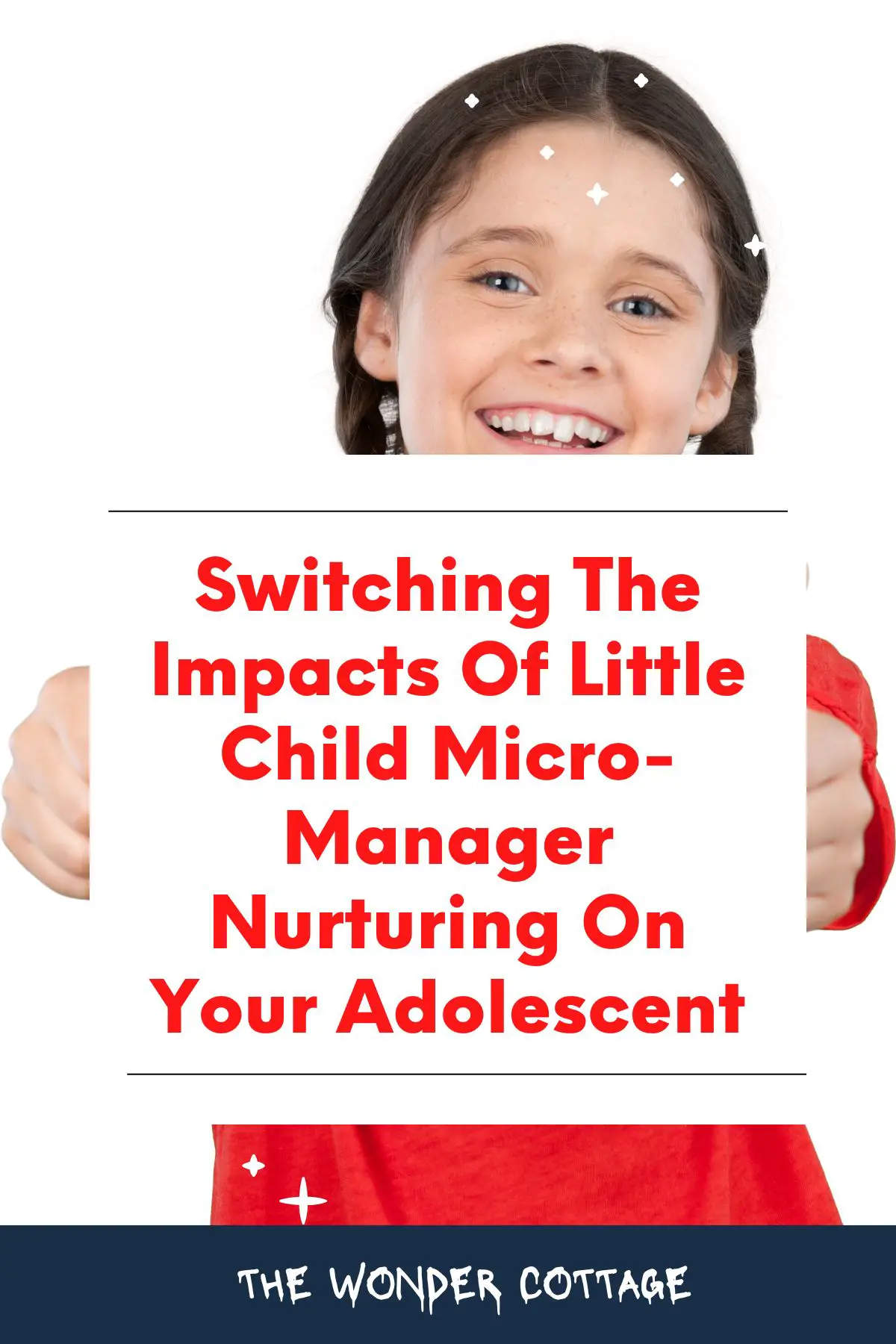On the off chance that you’re worried about being a steady, dynamic parent to your high schooler, however not in an excessively defensive and covering way as you perhaps were the point at which the person in question was a baby, the following are a couple of tips on break down your past nurturing expertise.
On the off chance that they came up short, we can offer you a couple of tips on the best way to now make it right.
The maxim “overly controlling nurturing” was first distributed by Dr. Haim Ginott in his book “Guardians and Young people” back in 1969.
It came from young people who alluded to their folks as drifting over them like a helicopter. Does that seem like you in past times?

The start of overly controlling nurturing conduct
At the point when your high schooler was a baby, you most likely invested a ton of energy watching out to ensure that the individual wasn’t getting up to naughtiness and wasn’t going into dangerous circumstances. It’s very sensible; as a matter of fact, It’s not just sensible – it’s fundamental.
Be that as it may, you can go excessively far. In this case, thinking back, you find you were continuously coordinating the kid’s way of behaving and not permitting the person in question any alone time, it ought to set the alerts ringing.
At elementary school, did you attempt to ensure the kid got a specific mentor or educator? Did you pick the youngster’s companions and exercises? Did you give your little one an excessive amount of help with school schoolwork and undertakings?
Assuming you did, that was the beginning of your overly controlling nurturing, and it can have adverse outcomes, particularly in the kid’s adolescent years and then some.
With good motivations
Overprotective guardians as a rule get going with good motivations. The issue is that it’s a precarious line, attempting to draw in yourself with your kids’ life, however not to get so enmeshed that you fail to focus on what they need.
Being connected as a parent benefits youngsters in some manner; causing them to feel cherished and acknowledged, permitting them to foster better self-assurance, and offering them chances to develop.
The trouble is that once you become driven by dread to pursue choices in view of what could occur, it’s difficult to remember the things that kids realize when you’re not there directing every single step.
Difficulties and disappointments cause no damage. As a matter of fact, they are fundamental since they’re all essential for the kid’s improvement in figuring out how to manage life’s hardships.
The unfavorable impacts of micro-manager nurturing. Overprotective nurturing a little child can have adverse outcomes.
A reduction of certainty and confidence
Micro-manager nurturing misfires in numerous ways, and one of them is to diminish a kid’s certainty and confidence. The kid feels that the parent has no faith in the person in question to do things solo. It’s a genuine certainty shaker.
Curbing adapting abilities
When a parent is consistently behind a kid, tidying up after any wreck or attempting to keep issues from happening in any case, how could that kid at any point figure out how to manage dissatisfaction, disappointment, or misfortune?
Increment sensations of uneasiness
The research attempted by the College of Mary Washington shows that overprotective nurturing is related to expanded degrees of both youngster nervousness and kid sadness.
Misleading propensity for narcissism
At the point when youngsters have their scholar, athletic, and public activities persistently changed by overprotective nurturing, they become used to continuously getting everything they could possibly want. Along these lines, they foster a misguided feeling of privilege.
Unfortunate fundamental abilities
If as a parent you were continuously tying the children’s shoestrings, clearing and cleaning plates after them, cleaning toys, making pressing snacks and watching out for progress at school, despite the fact that your kid was entirely adequate at doing a large number of these things oneself; you were forestalling the kid dominating fundamental abilities.
Fixing the harm that has been finished
No point in bringing this up again. Be that as it may, knowing the past can be something valuable, and assuming you understand you have been overprotective nurturing previously, and your kid has now turned into a high schooler, you want to put things right.
It’s an instance of correcting the wrongs that you, as a parent, have permitted you to develop, and an inversion is no simple thing. Removing that indulging can come as a shock.
Frequently, when your youngster misbehaves or fails to meet expectations, it may be the case that the individual in question is attempting to check a sensation of segregation achieved by the withdrawal of helicoptering.
The youngster needs to make a more noteworthy identity inside the family. This conduct might be driven by four things.
Missing the consideration
The withdrawal of consistent consideration and reconnaissance can drive a youngster to feel crazy, and blameworthy in light of the fact that they miss the nearby control. They feel that they are simply vital for you while you’re zeroing in consideration on them.
I must be in control
Once in a while, a youngster can accept that the person is just significant when they are in control. It’s driven by an inclination that they need to supervise the circumstance and get everything they could possibly want. It’s a characteristic response to the vacuum they feel they’ve been placed in through an apparent absence of consideration.
Looking for retribution
Your adolescent might accept that the person isn’t huge or anything else inside the family and that it’s your shortcoming. The outcome is they need to rebuff you and get you back for barring them, and the response is one of outrage. There are, obviously, numerous approaches to managing high schooler outrage.
I’m a disappointment
The last consequence of the consideration vacuum your youngster currently feels could make a sensation of disappointment. Having maybe attempted to feel huge and be a piece of the family and erroneously accepting they haven’t accomplished it, they can at times surrender and need to be let be.
Related Posts
Reversing the situation through certain nurturing
Having received the negative rewards of overly controlling nurturing, it’s currently time to reverse the situation with some great, positive nurturing. Something you can do is get your high schooler to begin doing more errands around the house.
This won’t just assist with showing that they are a significant piece of the family, yet it will likewise assist them with feeling more huge.
Meeting the test tranquilly
Managing an irate adolescent can challenge. The way that it is the expulsion of micro-manager nurturing that has achieved that outrage makes it much more so. The most ideal way of adapting to this present circumstance is to discuss it in a quiet way.
Give your high schooler the space to vent their disappointments, and afterward, carve out the ideal open door and place to have a significant conversation.
Lay out the main driver of the displeasure in your youngster’s brain and manage each point. Break down and address each part of the annoyance, put it into the right setting, and examine tranquil other options.
Prepping your high schooler to fly the home
The main thing currently is setting up your youngster to confront the rest of the world in a sure manner. Disregard the past and recall that drifting guardians frustrate freedom. Your work presently is to be steady however not excessively defensive or meddling.
Guarantee your high schooler feels an esteemed and cherished individual from the family. In particular, ensure that your adolescent realizes you will continuously be there, if and when required.

Creator Bio: Andy Earle is a specialist who studies parent-youngster correspondence and juvenile gambling ways of behaving. He is the fellow benefactor of talkingtoteens.com, a professional writer at WriteItGreat.com, and host of the Conversing with Youngsters webcast, a free week-after-week syndicated program for guardians of teens.



